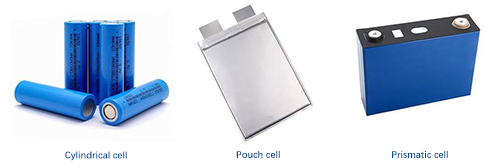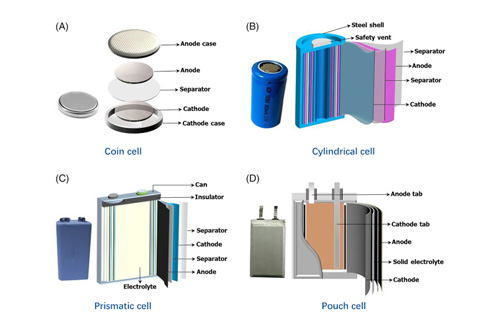Categories
Basic Knowledge Of Lithium-Ion Batteries
March 27 , 2025
Basic knowledge of lithium-ion batteries
1. What is a lithium-ion battery?
Lithium-ion batteries are rechargeable batteries that rely mainly on the movement of lithium ions between positive and negative electrodes to work. It has the advantages of high energy density, long cycle life, and low self-discharge rate, and is widely used in mobile phones, laptops, electric vehicles and other fields.

2. Composition of lithium-ion batteries
Lithium-ion batteries are mainly composed of the following parts:

3. Working principle of lithium-ion battery
The working principle of lithium-ion battery can be simply summarized as a "rocking chair" charging and discharging process:
Charging process: Under the action of an external electric field, lithium ions are released from the positive electrode material, embedded in the negative electrode material through the electrolyte, and electrons flow from the positive electrode to the negative electrode through an external circuit.
Discharging process: Under the action of an external load, lithium ions are released from the negative electrode material, embedded in the positive electrode material through the electrolyte, and electrons flow from the negative electrode to the positive electrode through an external circuit.
4. Main parameters of lithium-ion batteries
| Type | Nominal Voltage | Full Charge Voltage | Cut-off Voltage | Typical Applications |
| NMC/NCA | 3.6V ~ 3.7V | 4.2V (4.35V HV) | 2.5V ~ 3.0V | EVs, smartphones, laptops |
| LFP (LiFePO₄) | 3.2V | 3.65V | 2.5V | Energy storage, electric buses |
| LCO (LiCoO₂) | 3.7V | 4.2V (4.3V HV) | 3.0V | Mobile phones, tablets |
| LTO (Li₂TiO₃) | 2.4V | 2.8V | 1.5V ~ 1.8V | Fast-charging ESS, EVs |
| LMO (LiMn₂O₄) | 3.7V | 4.2V | 3.0V | Power tools, e-bikes |
5. Advantages and disadvantages of lithium-ion batteries
Advantages:
Disadvantages:
6. Application of lithium-ion batteries
Lithium-ion batteries are widely used in the following fields:
Acey New Energy is specialized in researching and manufacturing of high-end equipment for lithium-ion battery. We can not only provide equipment for lithium ion battery lab R&D, but also provide one-stop solution for lithium ion battery pack assembly line, if you are new in lithium ion battery industry, and want to build your own lithium ion battery production line or lithium ion battery pack assembly line, we can provide you professional technical support and guidance, please feel free to contact us!